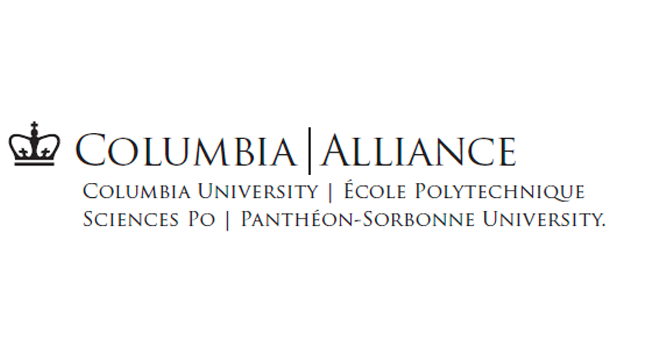Agenda
Novembre 16-19, 2020 | Paris time
| Launch event of the European Funders for Impact | |
|---|---|
| November 16th | |
| 4:00-4:15 pm | Welcome |
| 4:15-5:30 pm | The meaning and measurement of impact |
| November 17th | |
| 2:45-3:45 pm | Strengthening the funder-grantee relationship to increase impact |
| Break | |
| 4:00-5:00 pm | State of the field |
| 5:00-5:15 pm | Concluding remarks: Collaborating to increase impact – Next steps |
| Designing long-term strategies to promote impactful research on pressing global challenges | |
| November 18th | |
| 4:00-5:00 pm | The Value of the Humanities: Measuring the Impact of Liberal Arts Education |
| Break | |
| 5:30-6:30 pm | The impact of capacity building initiatives on the next generation of young scholars, universities, and economic development of MENA region |
| Break | |
| 7:00-8:00 pm | Supporting Strategic Grantmaking Through Knowledge Sharing and Collaboration |
| November 19th | |
| 4:00-5:00 pm | Action based research activities in Migration |
| Break | |
| 5:30-6:30 pm | Methodological perspective on research impact assessment |
Launch event of the European Funders for Impact
November 16th | Paris Time
4:00-4:15 pm
Welcome
Welcome and introduction by the organisers
Frédéric Forest, President, Fondation Maison des sciences de l’homme
Delphine Moralis, Chief Executive, European Foundation Centre
4:15-5:30 pm
The meaning and measurement of impact
Panel discussion
Paul Brest will lead off with a presentation, followed by a conversation with several funders who are sophisticated in their understanding of impact and measurement practices.
- The meaning of "impact." This requires outlining the elements of a theory of change (i.e., activities/outputs -> intermediate outcomes -> ultimate outcome) to explain that even for an organization to achieve its ultimate outcome doesn't mean that the organization necessarily had impact, because the outcome might have happened anyway (the counterfactual).
- The difference between monitoring (which is concerned with stages of the theory of change) and evaluation (which is concerned with impact)
- Methods for evaluating impact and their limitations--e.g., before/after, matching, RCTs.
- Why care about impact? Mainly so the organization and its funders can know whether it is making a difference, and how much, in order to improve its work.
- How much to spend on impact evaluation. It is only worth doing impact evaluation if its potential benefits outweigh the costs
- The current state of the field in Europe.
Q&A
Panelists
Paul Brest, Co-director of the Stanford Center on Philanthropy and Civil Society and former president of the William and Flora Hewlett Foundation
Saskia van den Dool, Managing Director, Adessium Foundation
Marco Demarie, Head of Planning, Research and Evaluation Dept, Compagnia di San Paolo
Cristina Chiotan, Evaluations Manager, European Climate Foundation
November 17th | Paris Time
2:45-3:45 pm
Strengthening the funder-grantee relationship to increase impact
- Innovative methods to build strong and open relationships between funders and grantees
- Structuring mid-grant progress reports as opportunities for data-informed continuous improvement
- Building funder-grantee partnerships to use social media, crowd sourcing and artificial intelligence (AI) more productively
- Navigating mistakes and setbacks to preserve and strengthen funder-grantee relationships
- Enhancing communications strategies, including public communications, to maximise impact and scale successful interventions
- Improving sustainability plans to help grantees with successful interventions win support from more routine funding channels
Panelists
Carole Frampton-de Tscharner, Organisational Development Lead International Partnerships Manager, PeaceNexus Foundation
Lynda Mansson, Director General, MAVA Foundation
Darius Polok, Managing Director of the International Alumni Center & Coordinator of the Bosch Alumni Network.
Q&A
Moderated by Hal Plotkin, Senior Scholar, Institute for the Study of Knowledge Management in Education
4:00-5:00 pm
State of the field
Taking stock of the shift from impact measurement to learning for systems-change by European foundations
- Why and how are foundations shifting from impact measurement to strategic learning and evaluation?
- Practical examples of collaborative learning with staff, boards, partners and beneficiaries
- Current and preferred learning and evaluation methods and practices for complex systems change
Panelists
Leonora Buckland, Senior Researcher, ESADE Business School
Lisa Hehenberger, Director, ESADE Entrepreneurship Institute
Lucia Patuzzi, Knowledge Hub Coordinator, European Foundation Centre
Q&A
Moderated by Hal Plotkin, Senior Scholar, Institute for the Study of Knowledge Management in Education
5:00-5:15 pm
Concluding remarks: Collaborating to increase impact – Next steps
Rapporteur’s report on possible areas ripe for future collaboration as discussed by meeting participants Looking back from 2040: A vision of the future we could create together
Designing long-term strategies to promote impactful research on pressing global challenges
November 18th | Paris Time
4:00-5:00 pm
The Value of the Humanities: Measuring the Impact of Liberal Arts Education
Today, many higher education leaders in the United States and Europe bemoan the erosion of the humanities. With the rising cost of university degrees and concerns about unemployment, many students are more confident enrolling in STEM degrees and believe that technical skills are more likely to secure employment opportunities in the future. Advocates of the humanities argue that a liberal arts degree equips individuals with a unique set of skills that are particularly valued by employers: critical thinking, creativity, communication and problem-solving skills. In a context where the crucial role of the humanities is often under-recognized and under-valued, what can be done to highlight the positive impact of liberal arts education? How can the value of a humanities degree be measured and demonstrated? Can researchers and professors in the humanities play a role in highlighting the critical contribution of their disciplines in shaping engaged citizens, committed to social justice and democracy?
Moderator
Emmanuel Kattan, Director of the Alliance Program, Columbia University
Panelists
Dominic Regester, Program Director, Saltzburg Global Seminar
Amy E. Hungerford, Executive Vice President for Arts and Sciences and Dean of the Faculty of Arts and Sciences, Columbia University
Pedro Cunha, Director of the Gulbenkian Program for Knowledge, Calouste Gulbenkian Foundation
5:30-6:30 pm
The impact of capacity building initiatives on the next generation of young scholars, universities, and economic development of MENA region
How do we measure the impact of funding programmes on the training and capacity building of young researchers and universities in the Middle-east and North Africa ? How have they been adapted in order to strengthen the effectiveness and the scope of the programmes and ensure their sustainability. The challenge of capacity building is to bring about change at several levels: at the individual level (improvement of scientific and technical skills), at the structural level (modernization of administrative process and international outreach) and more broadly at the sector level (financial transparency and university governance). Beyond the research community, the purpose is to reveal how capacity building in the academic world benefits the economy and the development of African and MENA countries.
Moderator
Hal Plotkin, Senior Scholar, Institute for the Study of Knowledge Management in Education
Panelists
Ragui Assaad, Professor, Research Fellow, Economic Research Forum
Moushira Elgeziri, Associate director, Arab Council for Social Sciences
Hillary Wiesner, Program Director for Transnational Movements and the Arab Region, Carnegie Corporation of New York
Safwan Masri, Executive Vice President for Global Centers and Global Development, Columbia University
7:00-8:00 pm
Supporting Strategic Grantmaking Through Knowledge Sharing and Collaboration
The search for more effective ways of managing and sharing knowledge to support high impact philanthropy is a critical component of the drive for continuous improvement. Within foundations, this model requires the creation of a trusted information sharing environment that includes funders and grantees, supports taking measurable risks, and produces a shared understanding of impact achieved. This conversation will focus on how leading foundations seek to maximize impact by collaborating and sharing information within both a local and regional context to better understand the factors that influence and sustain their desired level of social impact.
Moderator
Dr. Lisa Petrides, Founder & CEO, Institute for the Study of Knowledge Management in Education (ISKME)
Panelists
Jeff Ubois, Vice President, Knowledge Management, Lever for Change, MacArthur Foundation
Shelley Whelpton, Senior Managing Director, Arabella Advisors
LaVerne Evans Srinivasan, Vice President, National Program, and Program Director, Education, Carnegie Corporation of New York
November 19th | Paris Time
4:00-5:00 pm
Action based research activities in Migration
The role of research in determining "political" and "social" changes is not always recognized. Sometimes, not even well planned. Can this apparently well-known and widely spread common statement be questioned by experiences on the ground? Can we affirm, in opposition to the common sense, that an action based research model and approach is a de facto reality according to the experience of different stakeholders? The aim of this workshop is exactly framed in this scenario: demonstrate practical examples of action based research activities, with a specific focus on the "migration" issue. A complex and multi-faced topic that needs to be addressed using different perspectives and that requires an immediate practical and operational flap. More than other fields, research in migration has an immediate impact on the European Union citizens daily life, public opinion and political debate. This is exactly the aim of this workshop: demonstrating from a practitioners, academicians and institutional point of view what has been and what could be the impact of research in answering to the most urgent challenges for European Society. Different actors (Universities, Institutions, International Organizations) around the same table, for a debate sharing the same objective.
Moderator
Hal Plotkin, Senior Scholar, Institute for the Study of Knowledge Management in Education
Panelists
Claudia Natali, Head of Programme Development Support Unit, International Organization for Migration (IOM)
Luca Lixi, Migration and Mobility Policy Officer, DG Research and Innovation, European Commission
Marcello Scalisi, Director, Mediterranean Universities Union (Unimed)
Andras Kovats, Director, Menedék – Hungarian Association for Migrants
5:30-6:30 pm
Methodological perspective on research impact assessment
Research impact assessment is a growing need for research funders, who seek to understand and justify the value of investing in research. However, measuring and analysing research impact is not a trivial issue, which also depends on multiple interlinked factors. Since the 1990s and until relatively recently, scientific output indicators have been the main instrument for measuring the impact of funded research. In the last decade, criticisms of the validity of this model have surfaced, such as the San Francisco declaration (DORA) and the Leiden Manifesto. At the European level, a framework called Responsible Research and Innovation (RRI) has been created that advocates responsible science at all levels, including stakeholders as part of the process and taking into account the needs of society, among other points. In the past 6 months, research funders and operators have reacted to the COVID-19 development by orienting part of their fundings or operations to COVID-19 related research. It relates to the important and very much open debate about mission-oriented research vs. blue sky research. In this context, it is evident that the methodology for assessing the research impact should be determined by the purpose for which the funding program is being carried out. For this reason, a research impact assessment methodology is not self-evident and does not come in a single format, but it requires a long and iterative process of reflection. The proposed session will debate the methodological perspective of different research funders on how impact assessment should be designed and used to inform the definition of research programs and initiatives, not only as ex-post evaluation but as strategic guideline to orient research.
Moderator
Hal Plotkin, Senior Scholar, Institute for the Study of Knowledge Management in Education
Panelists
Valentina Amorese, Project manager Social Science research programme, Fondazione Cariplo
Gilles Lhuilier, Full Professor of law, École Normale Supérieure & Head of Global Legal Studies Network, Fondation Maison des sciences de l’homme
Bernardo Rondelli, Founding Partner and Director, SIRIS Academic
Paula Adam, Head of Research, Agency for Health Quality and Assessment of Catalonia






